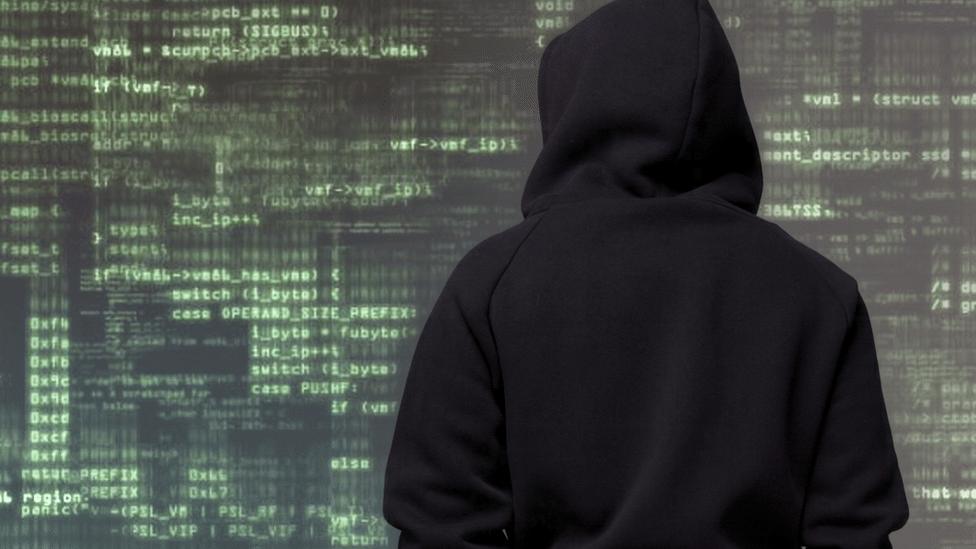Hackers for Hillary
- Published
- comments
WATCH: The hackers backing Hillary Clinton
Jake Braun’s attempt to organise a fundraising event for Hillary Clinton at the world’s biggest hacking conference was looking like a bad move.
“I think I had maybe a dozen RSVPs,” Mr Braun told me.
"And then Trump made his comment about giving Russia a pass to hack our election - and our RSVPs hit the roof.”
Donald Trump’s call for Russians to "find the 30,000 emails that are missing” from Mrs Clinton’s private email servers was seen as astonishingly reckless - even if he later said he was only joking.
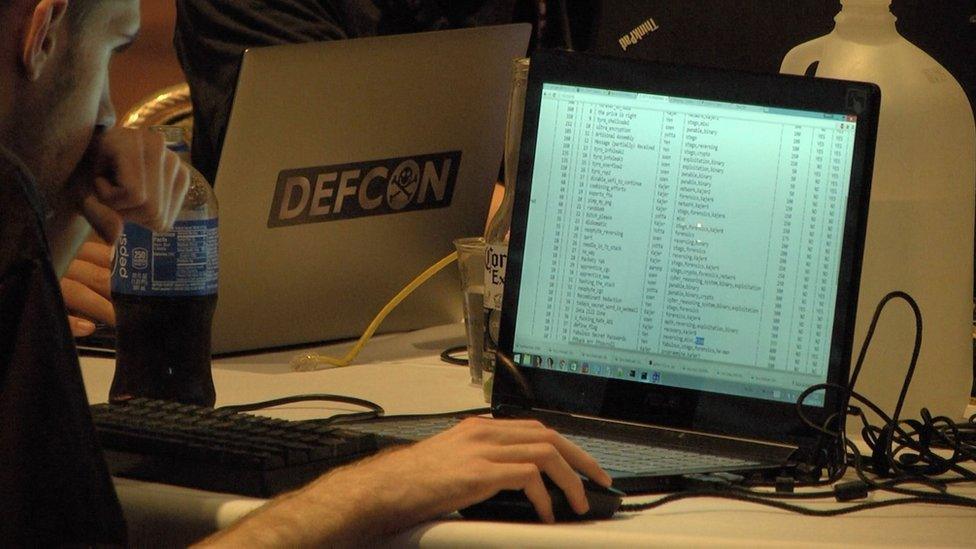
Hackers have been coming to Def Con for 24 years
It was a moment that caught the attention of the traditionally apolitical hacker movement.
‘Fear of the unknown'
Mr Braun’s event took place during Black Hat, a serious conference in Las Vegas for cybersecurity professionals. It overlaps with Def Con, considered to be the decidedly less serious “underground” hackers’ event.
Jeff Moss founded both conferences. Known to hackers as “The Dark Tangent”, Mr Moss is highly influential and respected figure. He agreed to speak at the fundraiser, despite actually being an independent voter.
“Whoever the next president is they’re going to have big challenges in cybersecurity,” he told me.
"Hillary has talked more to these issues than Trump has.
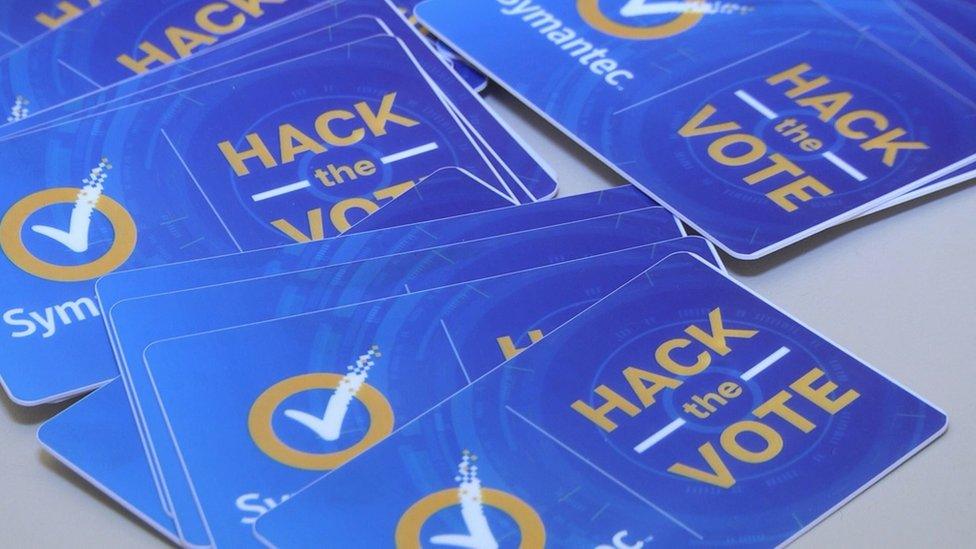
Symantec set up a demo voting booth to show how the machines could be hacked
“If it wasn’t Trump, and the two candidates were similar, then this [event] wouldn’t have happened. Because the candidates are so different, I think that fear of the unknown is what’s driving a lot of this."
Mr Moss said he felt Mrs Clinton’s efforts to help dissidents in foreign countries gain access to the internet is a positive mark on her cyber CV, but he is yet to learn where Mr Trump stands on internet freedom.
But that’s not to say Mrs Clinton has the hacker vote tied up. One of the fundraiser attendees (who wanted to remain anonymous as he worked for a major social network) said he saw this election as a choice between “bad and evil”.
On the Def Con show floor, another hacker told me: “You’ve got one guy who doesn’t know what he’s talking about. You’ve got one lady who knows what she’s talking about, but then she’s really not on our side."
Voting concern
Political parties aside, there are others who are concerned that the integrity of the vote itself may be at risk.
In many states in the US, electronic voting booths are used to cast ballots. Typically, voters will be given a smart card loaded with their details that they can use, just once, to place their vote.
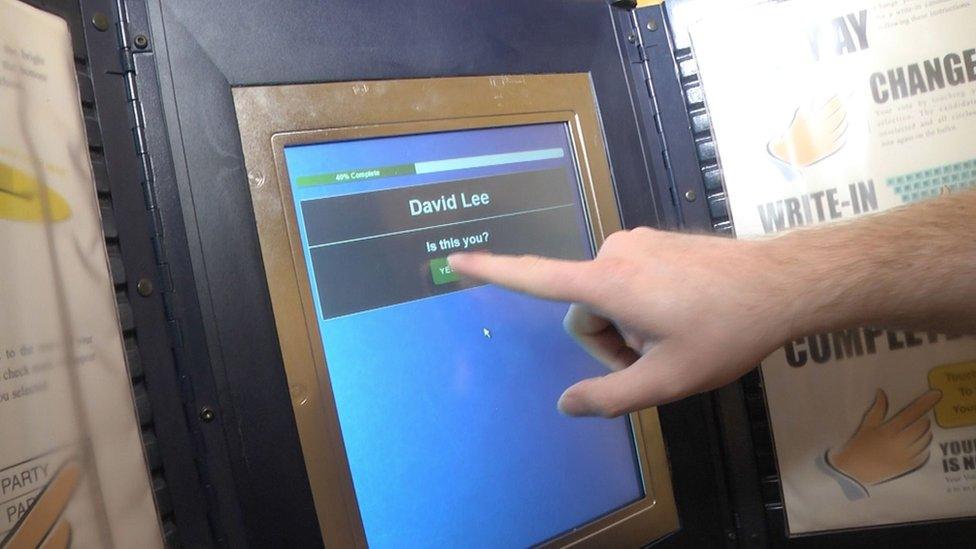
Voting machines like this one could soon be considered critical national infrastructure
But security experts have long suspected that the system has several vulnerabilities.
“Some of the biggest concerns are manipulation of the cards used to vote, allowing people to vote multiple times,” warned Kevin Haley, from security firm Symantec.
"There’s also the collection of the ballots itself. The ballots sit on the electronic voting machines, unencrypted.”
Brian Varner, a Symantec researcher, demonstrated how a tiny card reading device costing around $10 (£7.70) could be potentially used to reset the card so it could be used multiple times by the same person.
Symantec stressed that the company had no evidence that the scenarios it put forward had actually been tried out for real - but its concern is echoed by many.
The US Department of Homeland Security is having high-level discussions over whether or not to designate voting machines as critical national infrastructure.
If that happens, it will mean a lot more investment in keeping them secure.
Mr Haley did offer another idea - why not vote using only a piece of paper and a pencil?
Follow Dave Lee on Twitter @DaveLeeBBC, external and on Facebook, external
- Published27 July 2016
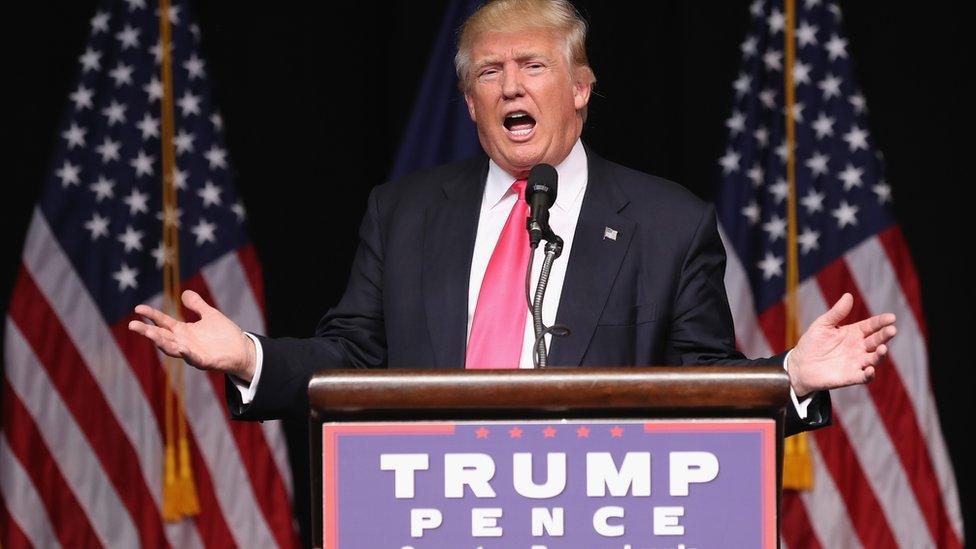
- Published30 July 2016

- Published28 July 2016
